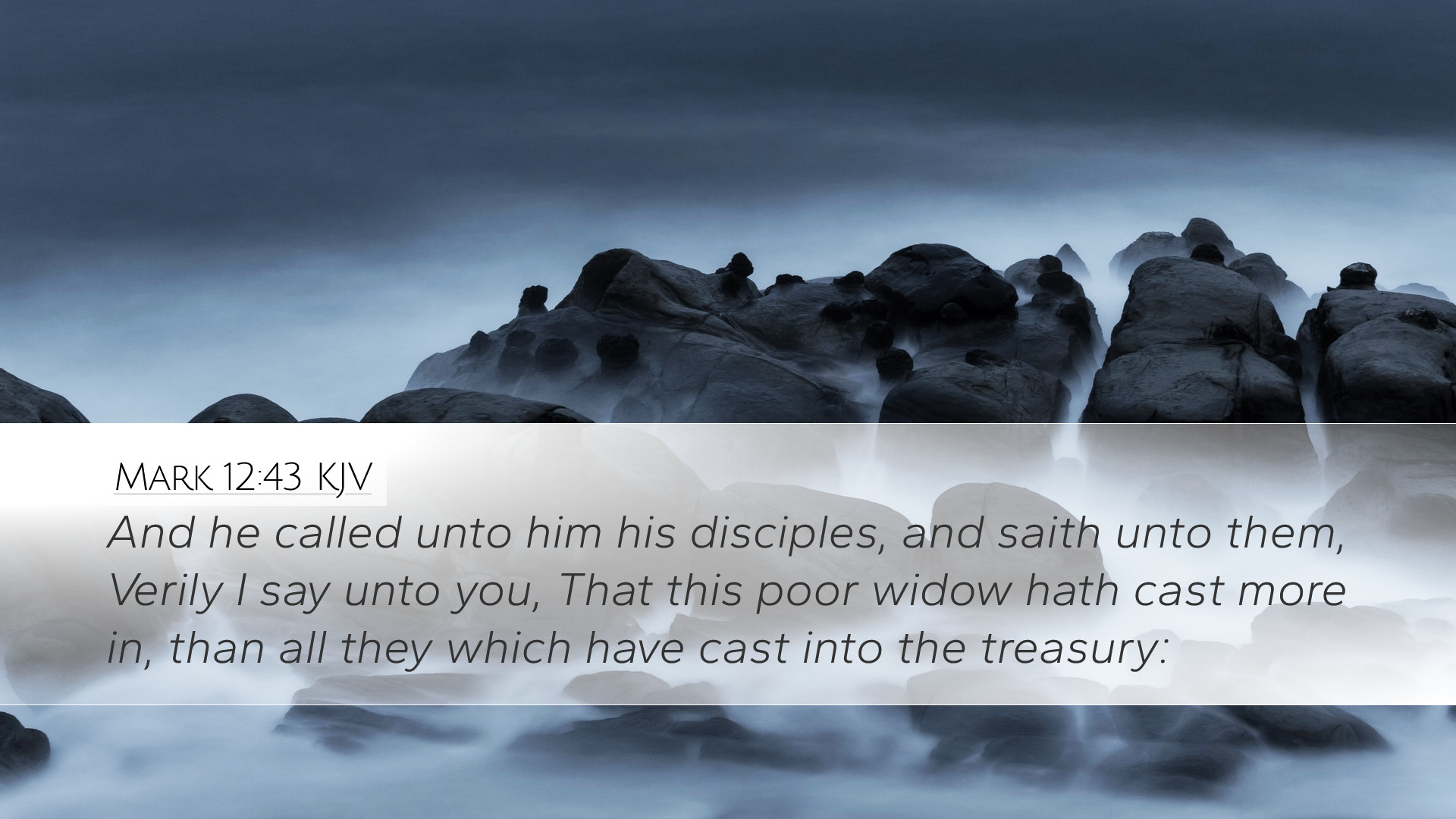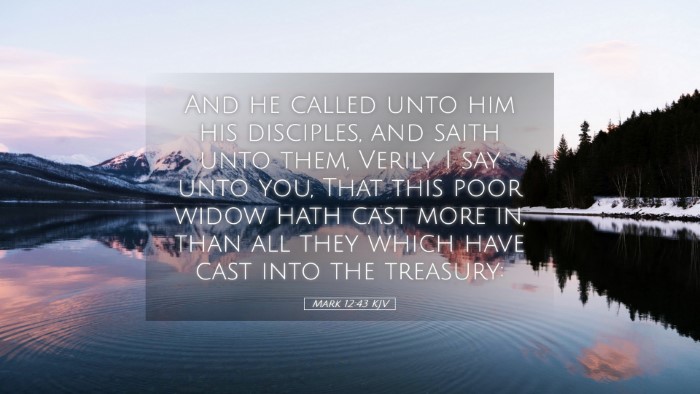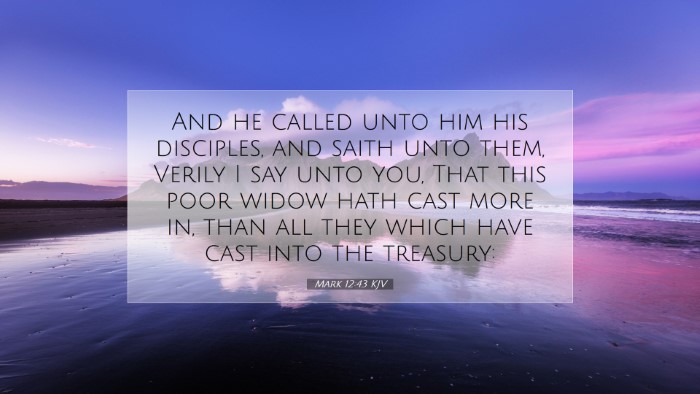Commentary on Mark 12:43
Verse: "And He called unto Him His disciples, and saith unto them, Verily I say unto you, That this poor widow hath cast more in, than all they which have cast into the treasury."
Contextual Overview
Mark 12:43 is situated within a narrative that emphasizes the true value of gifts presented to God, contrasting human standards of wealth and significance with divine perceptions. The scene is set in the Temple, where various individuals are seen contributing to the treasury. In this moment, Jesus draws attention to a particular act of giving, revealing profound spiritual truths.
Insights from Public Domain Commentaries
Matthew Henry’s Commentary
Matthew Henry observes that this instance reflects not just the act of giving but also the heart behind it. He notes the contrast of wealth, with the rich donating large sums while the widow, in her poverty, contributes all she possesses. Henry emphasizes that God values the motive behind the gift more than the gift's scale. The widow's offering, though minuscule in monetary terms, exceeds the donations of the rich in terms of faith and sacrifice.
Henry encourages readers to consider that God's accounting does not revolve around the volume of the sacrifice but rather its sincerity. The widow's total commitment serves as a model of true discipleship, showing that even the least among us can offer significant contributions in the Kingdom of God.
Albert Barnes’ Notes
Albert Barnes approaches this verse by shedding light on the moral lesson that emerges from the widow’s offering. He clarifies that the widow is an exemplar of complete devotion. She is noted as "poor," underscoring both her economic status and the extent of her sacrifice. Barnes notes that Jesus points out this act to his disciples, indicating its instructional value.
Barnes highlights how in societies, wealth is often revered and valued, creating a premise that bigger gifts denote greater virtue. However, Barnes underlines that true contributions are calibrated by their impact on the giver's life. The widow’s act indicates faith and a willingness to trust God wholly, emphasizing that what matters is not how much is given but how much remains after the gift, thus challenging societal norms of value.
Adam Clarke's Commentary
Adam Clarke provides a critical analysis of the conditions surrounding the widow’s offering. He observes that the Jewish religious system of the time often celebrated outward displays of wealth. Clarke uses this moment to peel back layers of hypocrisy in religious giving; many were inclined to seek honor and recognition for their gifts, yet the widow exemplifies a heart that is genuine and unattached to temporal status.
Clarke emphasizes the dynamics of faith at play—this widow gave out of her lack rather than her surplus, contrasting sharply with those who gave from their abundance, thereby making a profound statement about ultimate sacrifice and reliance on God. He posits that this act is significant not merely for its size but for the heart with which it was given, highlighting that God’s measures are different from human perceptions.
Theological Implications
This verse serves as an illustration of several broader theological themes:
- The Nature of True Sacrifice: The widow’s offering highlights that true generosity often comes from a place of sacrifice. This challenges readers to evaluate their own giving.
- Divine Value Judgment: God judges the heart more than the outward action. What seems insignificant to man may hold infinite worth in the sight of God.
- Faith and Trust: The widow's trust in God’s provision, even in her poverty, serves as a powerful reminder of faith’s role in stewardship.
- The Call to Discipleship: Jesus, drawing the disciples' attention, shows that the observance of such faith-filled acts is crucial in the formation of a disciple.
Conclusion
Mark 12:43 transcends a mere observation of giving; it is a rich source of spiritual insight that calls believers to reevaluate their motives and commitments in their walk of faith. The message encourages humility, sincerity, and the offer of one's life to God without reservation. As spiritual leaders, scholars, and students reflect on this text, they are reminded that the heart's posture in giving is a testament to one’s faith and relationship with God.


